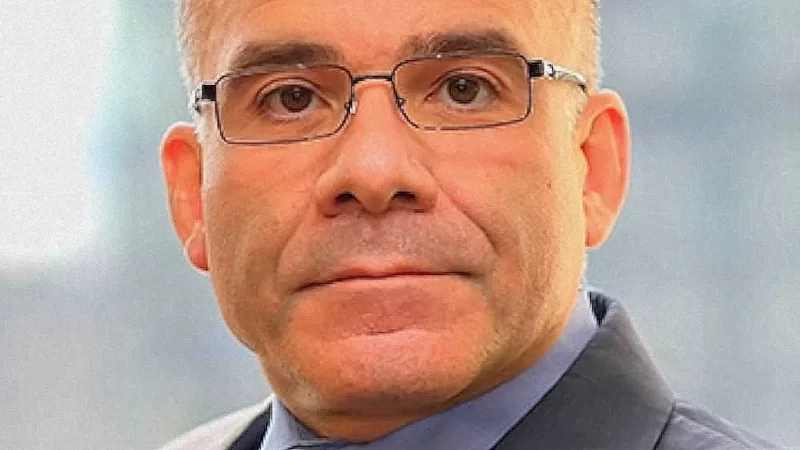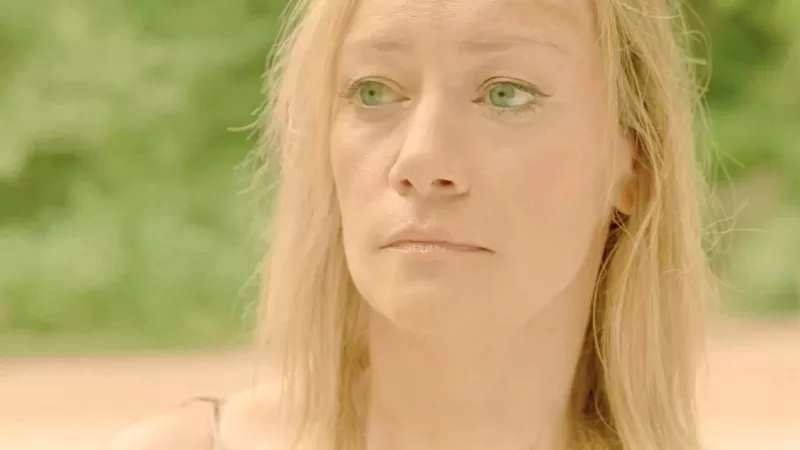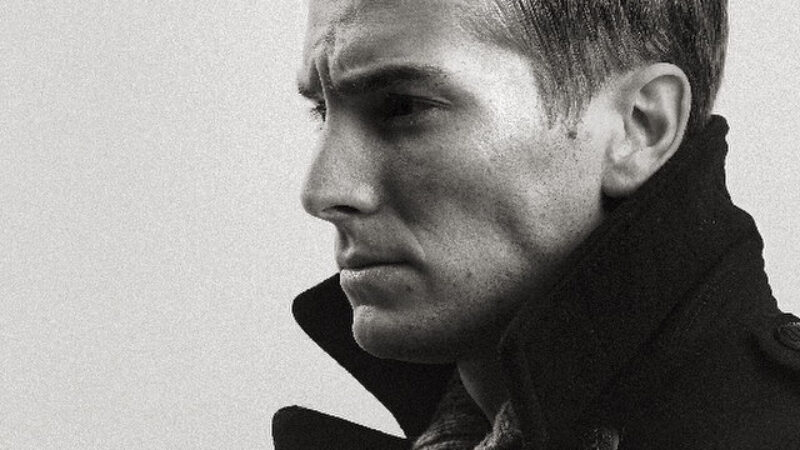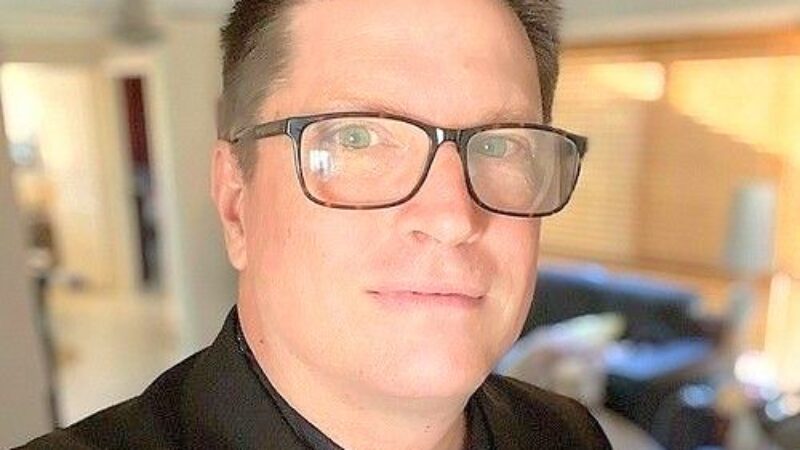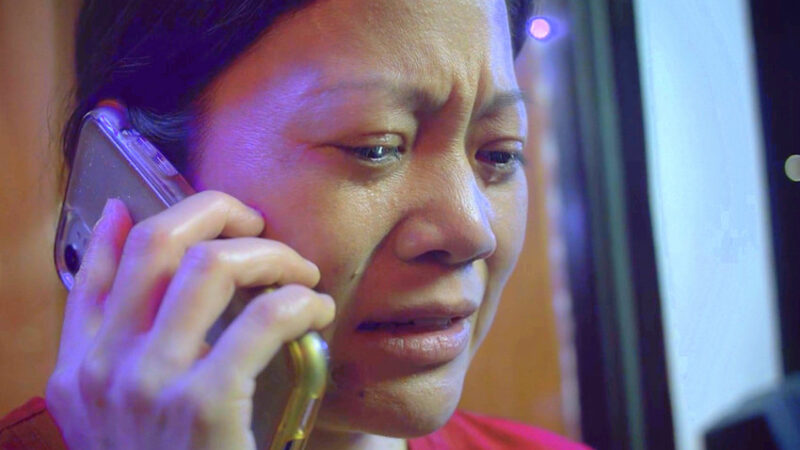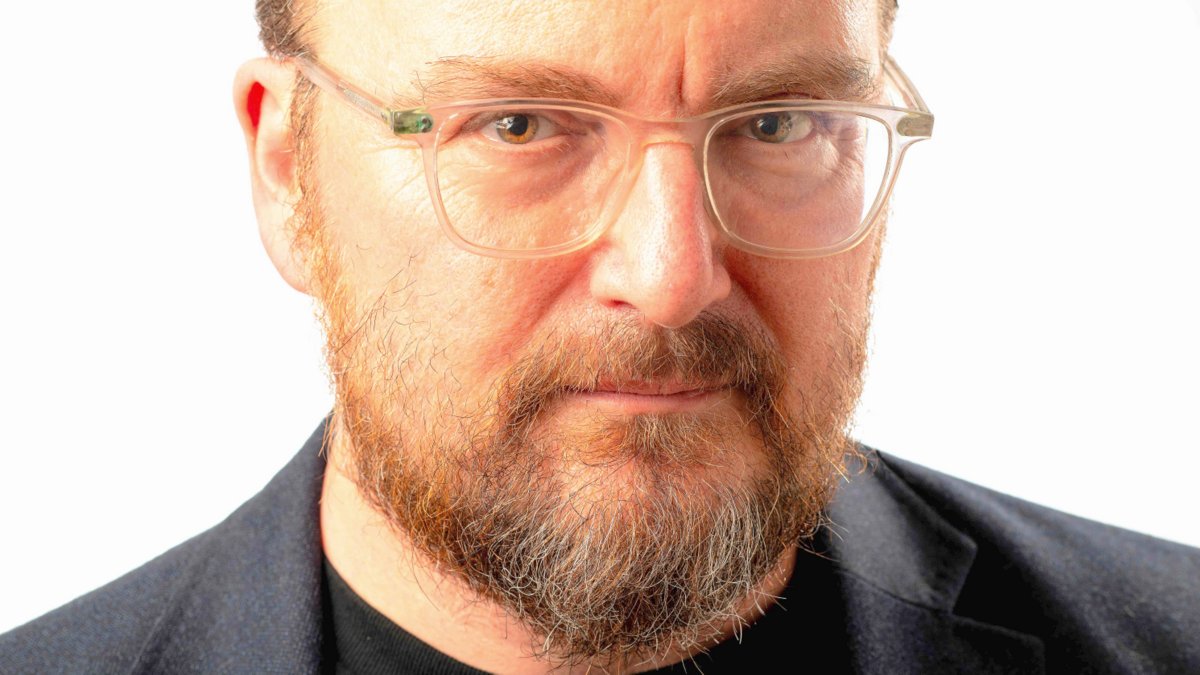
I moved to New York City in the mid-90’s to work in the film business. Starting out as a PA on Todd Solonz’s indie film Happiness, I moved up the ranks through lighting and camera departments to become a cinematographer and then director. Along the way I picked up three teaching jobs at nearby universities, which led to our filming STARGAZER on Rider University’s campus with their graduating class of 2021.
indieactivity: How would you describe your work as a director?
Alan McIntyre (AM): I am drawn to stories about outsiders trying to accomplish impossible tasks, hopefully with a little comedy for balance. I love good drama and genre storytelling that utilizes elements of film noir, period pieces and science fiction to mix and build in new ways. I am tired of the cookie cutter films that keep coming out, so my goals as a director are to surprise and delight the audience.
How did you get into directing?
Alan McIntyre (AM): I fell in love with filmmaking in middle school making projects for class, then pursued it as a major in college, where I had an amazing mentor in filmmaker Jill Godmilow. She pushed me to make more serious films and was generous with her critiques and development time for scripts and editing. She taught me how to make the film into something new and better in the editing process. As I built my set career to train and make a living, I saved up money to make short films and started directing music videos as a way to transition from cinematographer to director. I learned so much by working in a variety of jobs on other people’s movies, so when I got a chance to make my first feature I was able to avoid many of the mistakes I had seen before.
The Official Trailer for Stargazer Directed by Alan Mclntyre
How do you choose a project to direct?
Alan McIntyre (AM): I have to be able to connect to the struggle of the protagonists in order to consider directing a project. I don’t need to have had their exact experience, but there are many equivalent struggles that all people face, and a successful film connects many people through their shared struggles, hopes and dreams. If a project can’t make the average person feel sympathy or empathy then it isn’t universal enough to put out in the world. My mentor used to say: “Does this play in Poland?” as a way of checking if the struggle is real.
What uniqueness can female directors bring to film/tv/cinema?
Alan McIntyre (AM): Many of my directing and cinematographer mentors were women, who brought a unique perspective to the often male-dominated projects we were working on. It’s important to have a variety of life experience on set, in order to make the projects feel more real and detailed. With a group effort like filmmaking, the leadership is imperative, but every role on set can make a difference to the project, so the best filmmakers I’ve worked with have a vision but also are open to suggestions from their crew.
Do you often take courses to increase your craft?
Alan McIntyre (AM): I use my classes to practice my craft, teaching students by having them work with professional actors on projects that have stakes. I learn the best when something is on the line, my money, time or reputation, so I try to pass that on to the students and inspire them to keep practicing once they leave school.
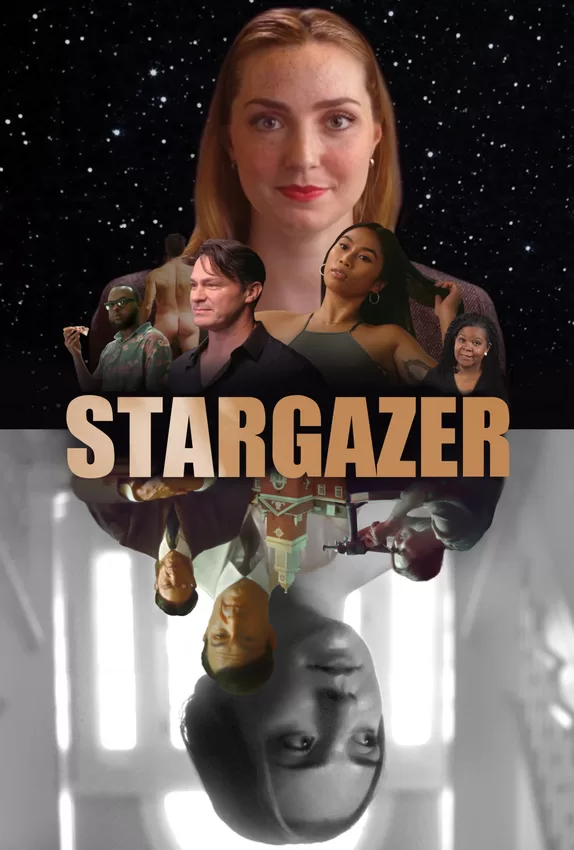
What books do you read?
Alan McIntyre (AM): I love to read about filmmaking as well as fiction. Recently I’ve been enjoying the reprint of Paul Schrader’s “Transcendental Style in Film” as well as several books by the late David Bordwell. For fiction I love Kurt Vonnegut, Dostoyevsky’s “Crime and Punishment”, Philip K. Dick’s “Valis” and many others.
Why would you choose an actor, writer, or producer? What do you look for?
Alan McIntyre (AM): When vetting a collaborator I look for a combination of passion, perspective and talent. Someone who thinks and sees differently from me so they can help challenge me to do my best work. I like to have fun on set, but also need feet to be held to the fire.
When you are offered a project, what things do you put in place to deliver a good job?
Alan McIntyre (AM): I make sure I know how to do most of what I’m proposing, but I also like to be a little bit scared of the job ahead, or else it might become rote. I need to feel a sense of challenge and growth from film to film. I worked many years in different jobs on set from PA and assistant director to lighting and camera so I feel confident that I know how to make a shot work and create scenes that build properly.
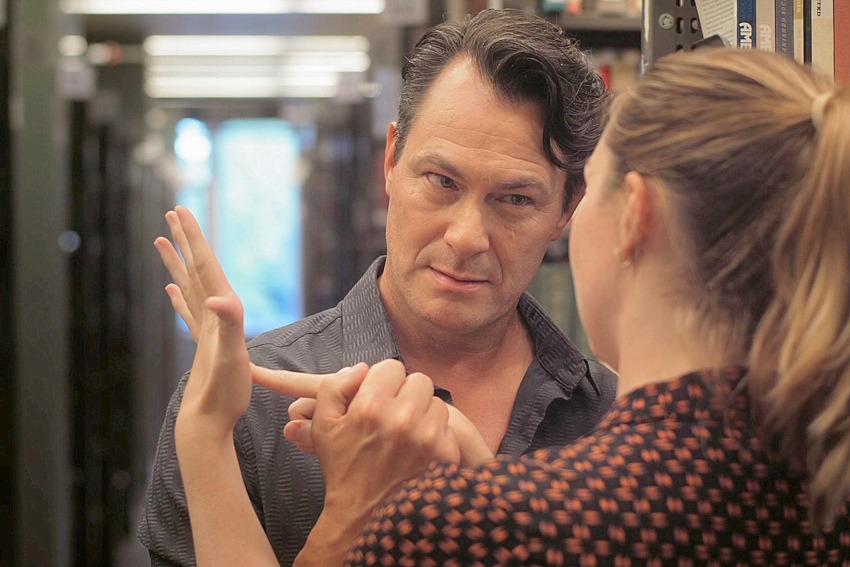
Briefly explain your latest work?
Alan McIntyre (AM): Stargazer is about finding your voice, and fighting for your credit when your project bears fruit. The protagonist, Grace Campbell, is on the precipice of adulthood and can’t find a way to make people care about her passion project. She is aided and distracted by an aging male reporter and Diana, a dance major struggling with her own project’s story. The themes of gender discrimination from the ancient world to Harvard in the 1920’s to a modern campus explore the cultural feedback loop we keep living as a society.
Explain key challenges on your last film?
Alan McIntyre (AM): We had a limited budget to make Stargazer, but the best way to make an indie film is to use what you have available. I had just finished teaching a film class at Rider University when the Stargazer script came to me, which took place on a campus. I coordinated with the film program at the school and they made the film possible by providing locations, dorms to stay in and I was able to hire the graduating seniors I had just taught as crew and supporting cast. When you don’t have a big budget you need to have an enthusiastic crew, and these students were excited to make minimum wage and get an IMDb credit a month after graduating.
Working with a film program that was excited to help us made the film possible. I called in every favor I could to get professionals I had previously trained as Steadicam operator, AC and color correction crew, so that the film would look and sound bigger than the budget would suggest. Without my years of working on set I would not have been able to assemble the talent from previous projects who were willing to give me a chance based on our prior experiences.
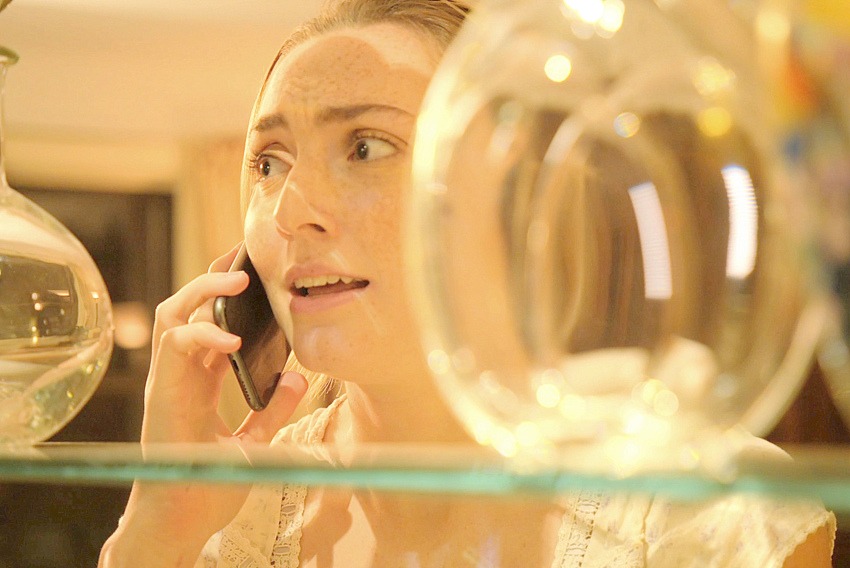
What ‘thing/situation’ helps you during production?
Alan McIntyre (AM): The most important thing on set is to have a cast and crew who are present, concentrating on the task at hand. If people need to talk or make a phone call they should leave, and no crew member should be zoned out on their phone. When everyone is watching the action, keeping track of their department, they will have ideas that help the film be better.
Explain a creative choice you took on the set of a recent production?
Alan McIntyre (AM): Stargazer was a script with a lot of dialogue, so I wanted to have the characters and camera moving in a dance to keep visual interest. I didn’t want a bumpy hand held look, so I got my former mentee and student Jordan Tetewsky to agree to shoot the entire film on Steadicam. together I knew I needed the camera to respond to the actors and I needed a lot of coverage to be able to cut any lines that didn’t work in the edit. I didn’t want to be a cinematographer who was directing his first feature and made the lighting more precious than the coverage or other practical considerations.
How do you advise directors to find projects?
Alan McIntyre (AM): I advise directors to make projects. Anytime I don’t have paying work, I either start a new creative project. Or I continue one of my side films that inch closer and closer to completion. I’ve never gotten anything by applying to jobs or contests. I’ve gotten all my projects by working with people. And that by impressing them with my dedication, charisma or technical skills. Saying “YES” is my mantra. People often pretend to be wise by telling young people to say “NO”. But, I’ve found that when I turn things down, the universe says “Oh, you don’t want work. Do you…?” Suddenly, I’ve got nothing doing. I’ve found that when I put myself out there. Even with things that I don’t want to do at first, it usually leads to new and better opportunities.

How can filmmakers finance their projects?
Alan McIntyre (AM): These days you can make things for cheap due to the technology that’s developed. I’d suggest if you have a script to finance, make a proof of concept short version of it. That is the best way to show people you deserve their money. Anyone can have a dream. Show people that you are actually pursuing your goals. That will put you ahead of many filmmakers who are all talk but no “action”.
What do you want from an actor during a production?
Alan McIntyre (AM): I want an actor to know things about the character that I don’t. I look for mystery of the character in their eyes, their reactions, the tone of their voice. I think of it like dating. When you meet someone you’re attracted to you want to find out everything about them. But, often the mystery is more compelling than reality. So, you need to strike a balance by letting the audience in but not turning on all the lights.
How do you prefer to work with a producer during a production?
Alan McIntyre (AM): I need a good producer to coordinate and schedule and work out the deals. Someone to help keep track of the big picture and have creative input is great in a producer. Keeping you honest in the creative elements. A straightforward thinker is necessary as the creative process is often circuitous and confusing.
What do you think a female director can do to get into the film industry?
Alan McIntyre (AM): Make films and be present and patient, but unrelenting.
Who is your favorite director?
Alan McIntyre (AM): Stanley Kubrick

Why?
Alan McIntyre (AM): I love Kubrick’s films. They build a world and the camera is always in the right place. He understood the tools he was using to make films. You see his progress in leaps and bounds throughout his career.
what advice would you give male/female directors around the world?
Alan McIntyre (AM): Make films and be present and patient, but unrelenting.
Briefly write about your career?
Alan McIntyre (AM): As I was starting out I quickly realized that directing was going to be a long game. So, I pursued cinematography as a way to get there.
I saw that the cinematographers who didn’t know how to light would often hold up the shoot. As they lit and relit the set. So, I got training as a lighting technician, working as electric on “Spiderman” and “A Beautiful Mind”. Eventually I worked as gaffer with some incredible DP’s like Oliver Bokelberg. I worked on the Sundance winning hit “The Station Agent”. Also with Maryse Alberti on Oscar winning docs like “Enron: The Smartest Guys in the Room”. And “Taxi to the Dark Side”.
Lisa Rinzler became my cinematography mentor and pushed me to improve the subtlety in my lighting. Solving production problems from the practical mind-set of a technician helps me figure out the more intractable problems of an artistic nature.
Having developed a number of skill sets, I am able to pivot as events arise. For example, when Covid-19 hit, all my cinematography work disappeared overnight. So I started editing, directing and remote teaching to pay the rent.
Tell us what you think of the interview with Alan McIntyre. What do you think of it? What ideas did you get? Do you have any suggestions? Or did it help you? Let’s have your comments below and/or on Facebook, Instagram, or Twitter.
Socials
Website
Facebook
LinkedIn
Instagram
Vimeo
FILMMAKER INTERVIEWS



